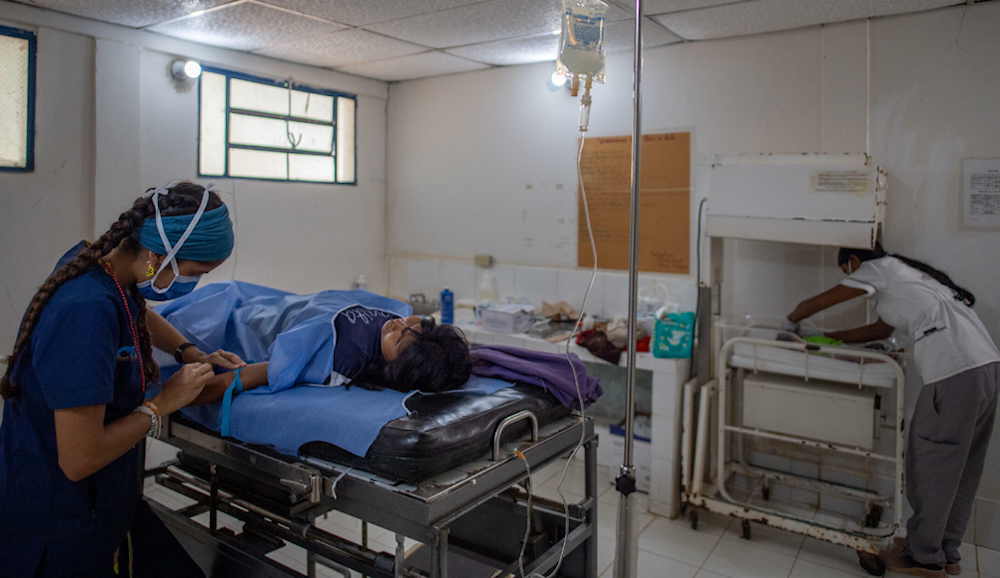Iran to send experts to Venezuela to aid with medical accelerators
Despite sanctions imposed on both nations, Iran and Venezuela have both strengthened their partnership.
-

The La Milagrosa Medical Center in the Manipur sector of Venezuela's Bolivar state, undated (AFP)
Iran announced on Saturday that it will send professionals to Venezuela to assist with medical accelerators at hospitals that had been halted owing to Western sanctions.
Venezuela asked Iran for assistance, according to a statement posted on the Iranian government's social media site X by the head of Iran's Atomic Energy Organization.
🇮🇷 | Head of Atomic Energy: Venezuela has a number of accelerators in its hospitals that have been stopped due to the embargo; According to the request of the Venezuelan government, our experts are going there to help.
— Government of the Islamic Republic of Iran (@Iran_GOV) May 18, 2024
Medical accelerators are employed in radiation therapy for cancer patients, and since the US reimplemented sanctions on Venezuela's oil industry, the nation has strengthened its partnership with Iran to keep its energy sector viable.
Delcy Rodriguez, Venezuela's Vice President, remarked on Tuesday that sanctions, "along with war," is the "central axis" of the US foreign strategy, adding that the US unilateral coercive steps are intended to compel Venezuela into changing its path of self-determination and autonomy and that the sanctions constitute new neocolonial tactics.
She added that by using unilateral coercive tactics, the US wishes to "blackmail" Venezuela into changing its course of sovereignty and autonomy.
"Over 1,000 unilateral coercive measures, wrongly called 'sanctions', have been used to blackmail us and force us to change our course of independence and self-determination," Rodriguez explained, adding that Venezuela has been "punished for our defense of self-determination" in what she called a "new form of colonialism that seeks to seize our resources."
Maduro says fresh US sanctions on Venezuela 'grave mistake'
Venezuelan President Nicolas Maduro described the United States' reimposition of sanctions on his country as a "grave mistake".
US officials recently announced that the Biden administration will reimpose sanctions on Venezuela, claiming that the Maduro government did not uphold "an inclusive and competitive election."
The United States "did not honor a single word of the agreement signed last October in Qatar," Maduro stressed during a meeting with an Iranian delegation visiting the country to enhance strategic relations between Caracas and Tehran on Tuesday.
He was referring to talks brokered by Qatar in September 2023, which resulted in a prisoner swap in which 10 Americans and 18 Venezuelans were released in exchange for Alex Saab, a Venezuelan diplomat accused by Washington of money laundering. Saab was liberated in December from US prison after his kidnapping from Cape Verde in 2020.
Venezuela said that Washington had also vowed to end sanctions if a presidential election was held in 2024. The Biden administration suspended some sanctions after Maduro's government and the opposition agreed in Barbados last October to hold a free and fair vote.
Washington later accused Venezuelan authorities of violating the Barbados agreement and preventing the opposition from registering the candidate of their choice.

 3 Min Read
3 Min Read








